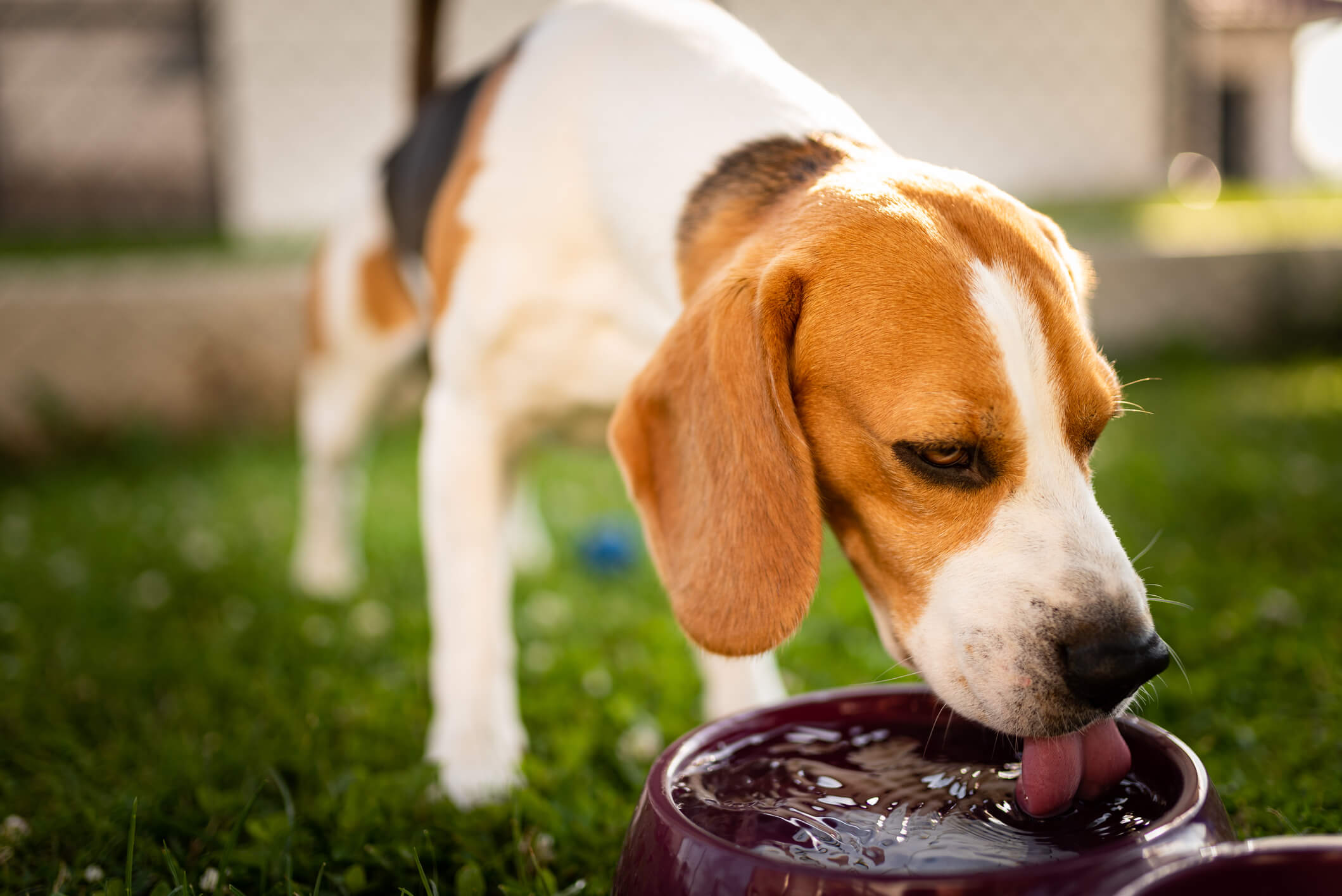
7 Ways to Make Your Dog's Kidneys Stronger
It’s easy to forget about something you can’t see. Kidney health often escapes even the most devoted pet owners because they don’t think to address a problem until it becomes obvious.
However, kidney disease is much easier to prevent than it is to treat! Dogs who are approaching their senior years need healthy kidneys so they can continue to live a long, healthy and happy life.

Support your dog’s kidney health by following these seven dietary and lifestyle habits.
- Choose the right proteins: When the digestive system breaks down proteins, it sends waste byproducts to the kidneys. A low-protein diet can limit the volume of toxins your dog’s kidneys have to expel from the body. Ask your vet about bioavailable forms of protein, which are readily absorbed into the bloodstream and generate less waste during digestion. If you want to try your hand at home-cooked doggy meals, opt for lean proteins like chicken or turkey.
- Provide lots of fresh, clean water: All living beings need water, but it’s especially crucial for maintaining kidney health! Canine kidneys have to stay hydrated because they create urine that carries toxins out of the body. Place water bowls throughout your home and replenish them with clean water every day to entice your pup to drink. It doesn’t matter if pet parents use purified or tap water, as long as it’s fresh.
- Add moisture to their food: Dogs hydrate in more ways than just drinking water. Canned wet food is a quick and easy way to introduce more water into your dog’s diet. However, you can still feed them dry food if you counteract its dehydrating effects. Increase your pup’s daily water intake by moistening dry kibble with water, tuna juice or low-sodium meat broth. The extra flavor is usually more palatable than lapping from the water bowl!
- Swap high-carb treats for veggies: Many commercial dog foods and treats are loaded with carbohydrates. Dogs who eat lots of carbs tend to have increased levels of inflammatory compounds in their bloodstreams. Inflammation puts undue stress on the kidneys and makes it difficult for them to function. Ditch the commercial dog treats and feed Fido some vegetables instead! Carrots are safe for dogs, low in calories and supply their daily dose of fiber. Green beans are packed with iron and vitamins that can supplement a healthy, balanced diet.
- Incorporate omega-3 fatty acids: In addition to limiting carbs, pet parents should increase their dog’s intake of omega-3 fatty acids. This healthy fat further reduces inflammation and oxidative stress on the kidneys. A great source of omega-3 fatty acids is cooked fish like salmon or tuna. However, cooking your dog’s meals everyday can take up a lot of time. Omega-3 fatty acids are also available through specially formulated kidney foods and supplements. Dogs can usually have fish oil, too, but you should check with your vet for proper dosage first.
- Avoid stressful encounters: A stressed pup will lose their appetite and not drink enough water. Dehydration and a lack of nutrients prevent the kidneys from performing at their best. To keep your dog hydrated and nourished, avoid stressful situations like boarding kennels and crowded gatherings. Instead, hire a dog sitter and ask a friend to watch your pup when you have guests over. Some stressors like a new pet, family member or home are unavoidable—in that case, consider calming supplements or your dog’s favorite food to encourage them to eat.
- Regulate their body temperature: While kidney health is mostly about diet, daily lifestyle habits also factor into how well your dog’s kidneys function. Extremely hot or cold temperatures put unnecessary stress on their immune system, which leaves the body vulnerable to viruses and toxins. Keep your pup (and their kidneys) in top shape by helping them maintain a comfortable temperature. Stay inside during peak hours of the day in the summer. Give them lots of blankets for the winter and consider purchasing a coat and little booties for bathroom breaks!
As pups get older, it becomes increasingly important to promote their overall health. The kidneys aren’t as efficient as they used to be, which can cause toxins to accumulate in the bloodstream. Luckily, a few small changes can add years back onto your dog’s life and reduce their risk of kidney disease. That means many more years of love, cuddles and one happy pup!


